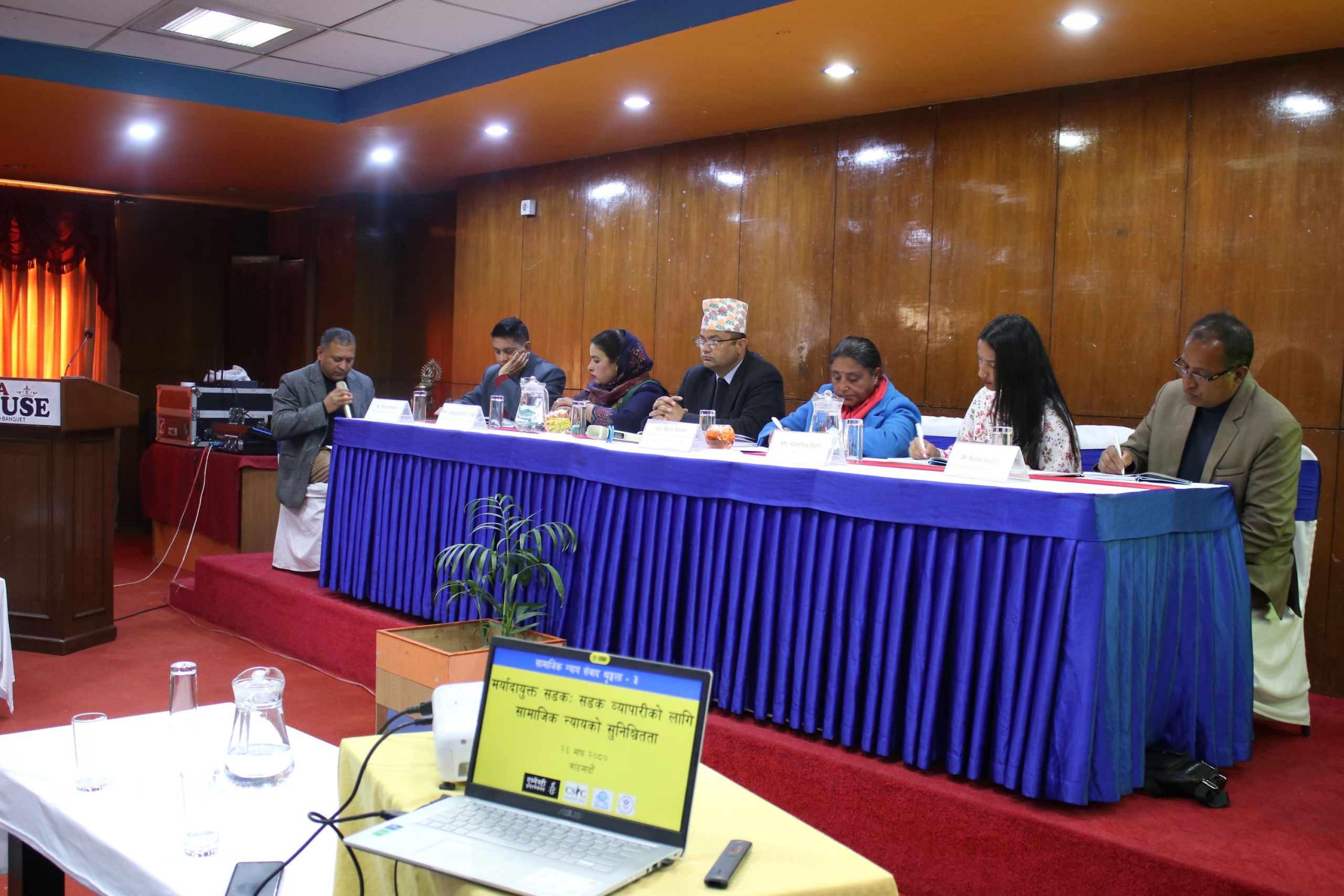In urban areas in Nepal, including in Kathmandu valley, street vendors are not only increasingly facing incidents of harassment, seizure of merchandise goods, and manhandling by the municipal authorities, but are also becoming victims of intolerance and even hostility. The right to life, dignity and well-being of people who are subsisting through small street vending businesses in Nepal is under serious jeopardy, as the local governments are increasingly prohibiting the streets for street vending and turning hostile and abusive to the vendors.
In this backdrop, on 9 February, Amnesty International Nepal in coordination with Community Self Reliance Centre (CSRC), JuRI-Nepal and Nepal Mahila Ekata Samaj jointly organised a program titled “Streets of Dignity: Ensuring Social Justice for Street Vendors” to discuss how local governments can and must manage the issue of street vending in Nepal through a human rights-based approach. Participants included members of Parliament, street vendors, civil society members, activists, and the media.
“Street vendors are people, like you and me, who want to work and fend for themselves and for their families, but they are not being given the opportunity. But why is our government becoming increasingly intolerant of street vendors? Are the streets only for the rich? What kind of a society does our government want to build? We’re gathered here today to discuss these very questions and try to find human-rights based approach to the issues of street vending in Nepal,” said Bhagwati Adhikari, executive director of Nepal Mahila Ekata Samaj, who was emceeing the discussion program.
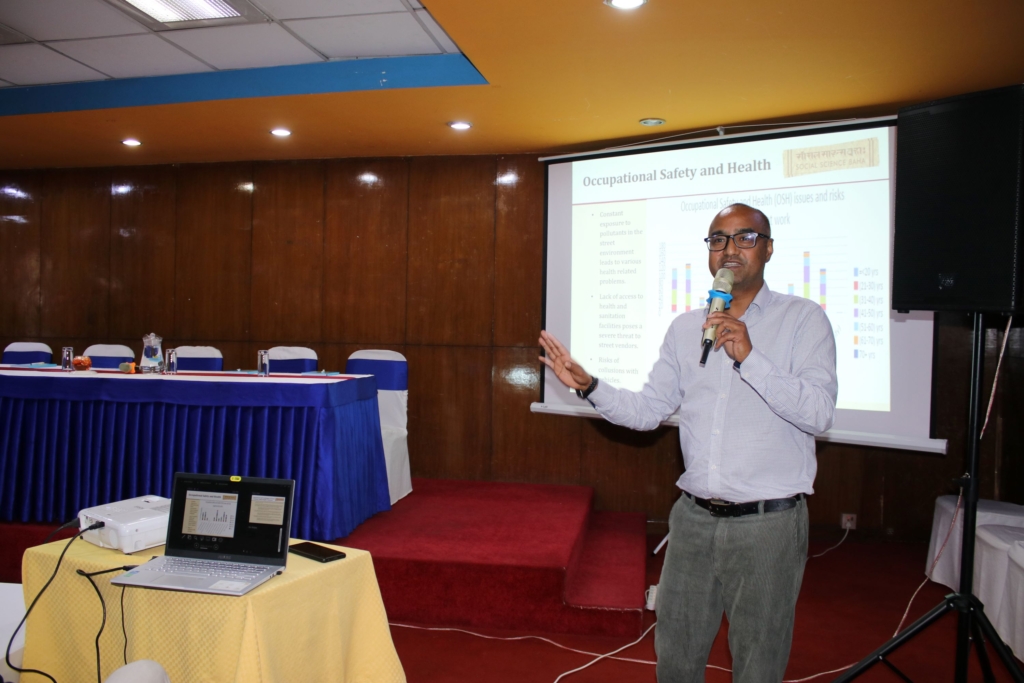
The program started with a presentation by Dr. Jeevan Baniya, Assistant Director, Center for Study of Labor and Mobility (CESLAM), and Amit Gautam, from Social Science Baha. The presentation was about a sharing of preliminary findings on a study by Social Science Baha, with technical support from the UN Resident Coordinator’s Office in Nepal, on the ‘Social Protection Needs of Street Vendors in Kathmandu’.
The presenters discussed their findings on the financial and social security of street vendors, their experiences, what efforts local governments have put in making street vending systematised, among other issues.
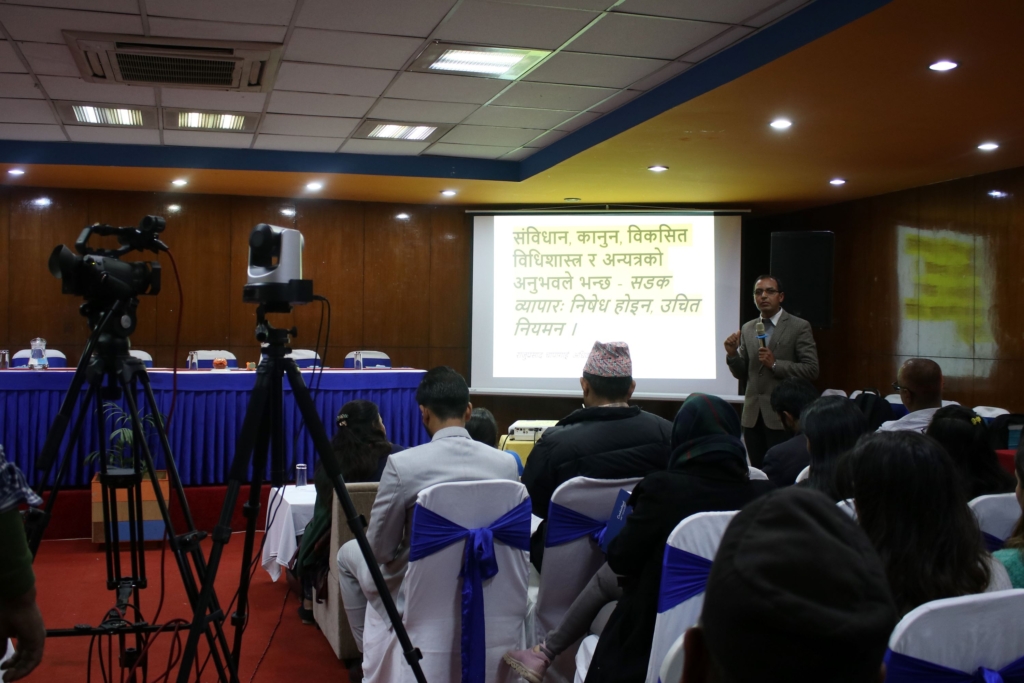
This was followed by another presentation, by Raju Prasad Chapagai, Constitutional and Human Right Lawyer, on ‘Street Vending: Exploring Laws, Policies and Legal Landscape’. The insightful presentation delved into Nepal’s laws and regulations regarding street vending, the disdainful lens through which the State views street vendors, international human rights standards, and how street vending is practised in other countries and what Nepal can learn from them.
To voice their plight, street vendors too were a part of the discussion. Sanjeeva Timilsina, a street vendor who lives in Tripureshwor, shared her experience, saying: “I sell corn to make ends meet for my family. I have a sickly daughter to take care of and have to take care of her school expenses as well. I need to make money, but the municipal police do not understand my predicament. They have already taken my cart and my goods twice and I had to pay a fine of Rs.6,000 each time. If only the authorities would let us work with dignity and respect us.”
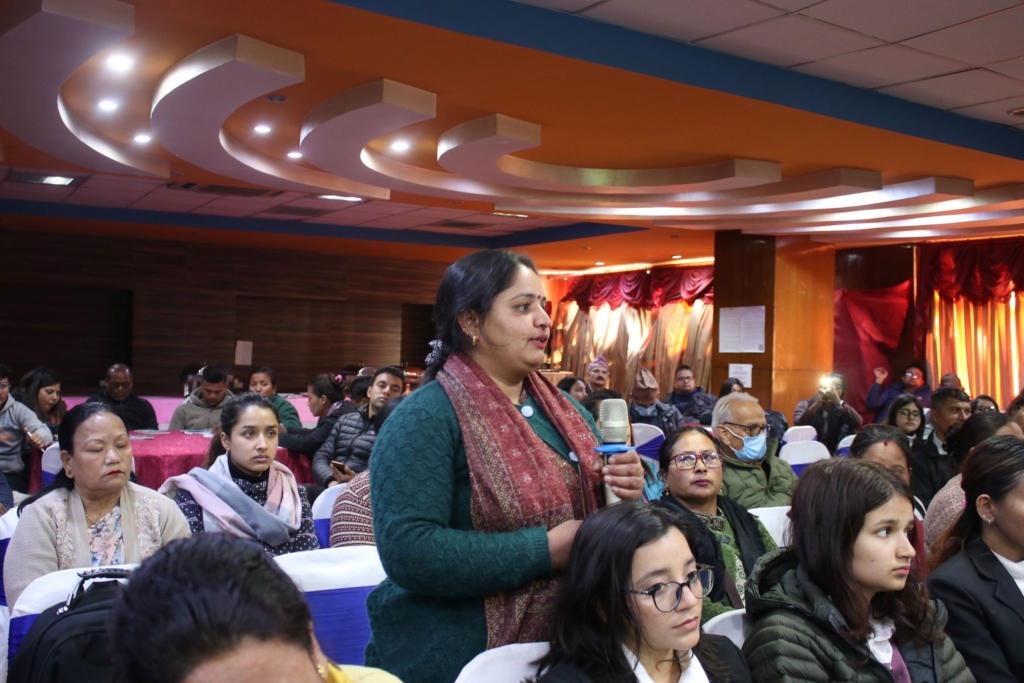
Before diving into a panel discussion to stress the need for a more humane approach towards street vendors in Kathmandu, a short message by activist Iih was also screened for those present in the discussion. Iih has been protesting for the rights of street vendors for months now, even standing for 165 hours in front of Rastriya Sabha Griha, Kathmandu, demanding the Kathmandu Metropolitan City authorities be more considerate towards street vendors and foster a city that facilitates street vendors to carry out their business peacefully.
This short video screening was then followed by a panel discussion with government representatives, street vendors and other stakeholders. The panel was facilitated by Amnesty Nepal’s Director Nirajan Thapaliya. During the discussion, Members of the Parliament in the panel pledged to take the issue forward in the Parliament to push for a human rights-based approach to address the issue of street vending in Nepal.
“It is the responsibility of the State to take care of its people and not quell their voice and their only means of income. We must find dignified solutions and not be inconsiderate. Nobody comes to the streets out of choice, they do it out of necessity. Street vendors are a part of many of the most advanced cities in the world, like in Indonesia; they are a part of a city’s culture, its economy, and its ethos. We need to find a way that protects the rights of street vendors. I will take this issue forward in Parliament,” said Padam Giri, member of Parliament and chief whip of CPN-UML.
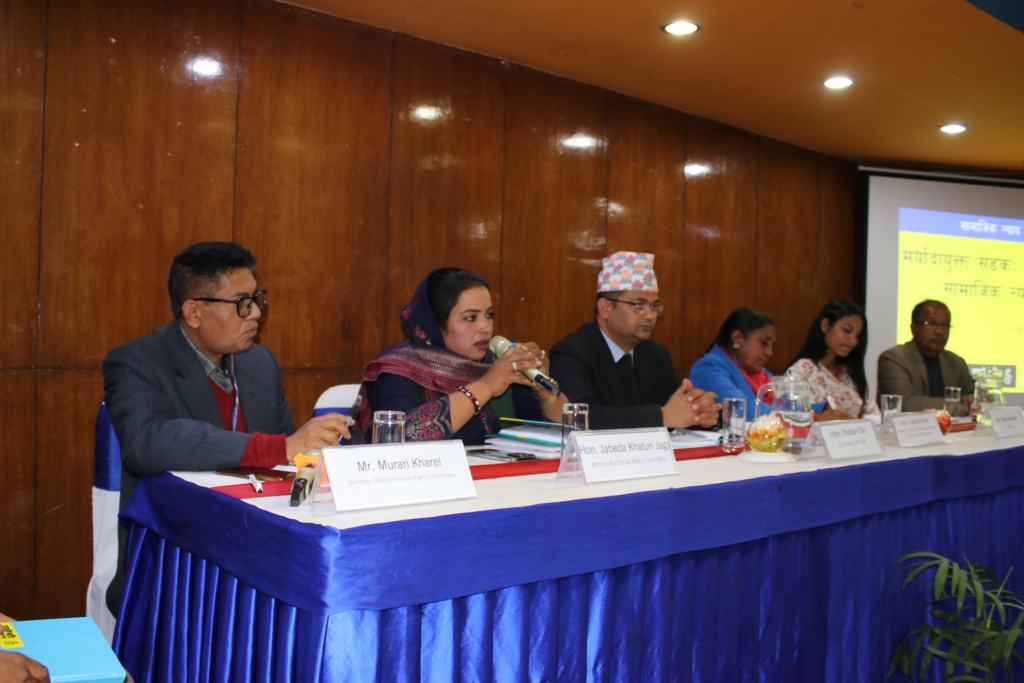
Jaweda Khatun Jaga, member of Parliament, reiterated Giri’s commitment to broaching the topic in Parliament, stressing the added injustice and disrespect women street vendors face at the hands of municipal police personnel, saying the safety of women street vendors is something that needs to be highlighted as well.
Murari Prasad Kharel, acting Secretary of the National Human Rights Commission, stressed the need for laws to be in place to facilitate a systematic approach towards street vendors, acknowledging also the NHRC’s failure to address this issue with local authorities with more severity. “We need to find a human rights-based approach to address this issue and bring in place laws that will guide smooth operation of street vendors so that it is not haphazard and also respects the vendors’ right to dignity,” he said.
Rama Koirala Poudel, member of Parliament, also stressed the need for laws to be in place that facilitate street vendors to smoothly operate. In addition, Raksha Bam, activist, spoke about the role youth activists play in raising voice for street vendors not from a place of sympathy but empathy and solidarity. Finally, Kumar Sapkota, chairperson of Nepal Independent Street Vendor Trade Union, urged everyone to push this issue so it gets recognized as a legal business.
The program came to an end with a short note by JuRI-Nepal’s deputy executive director Bishnu Pokhrel who stressed on the need for the Parliamentarians to raise the issue with the urgency and seriousness it deserves in Parliament.


